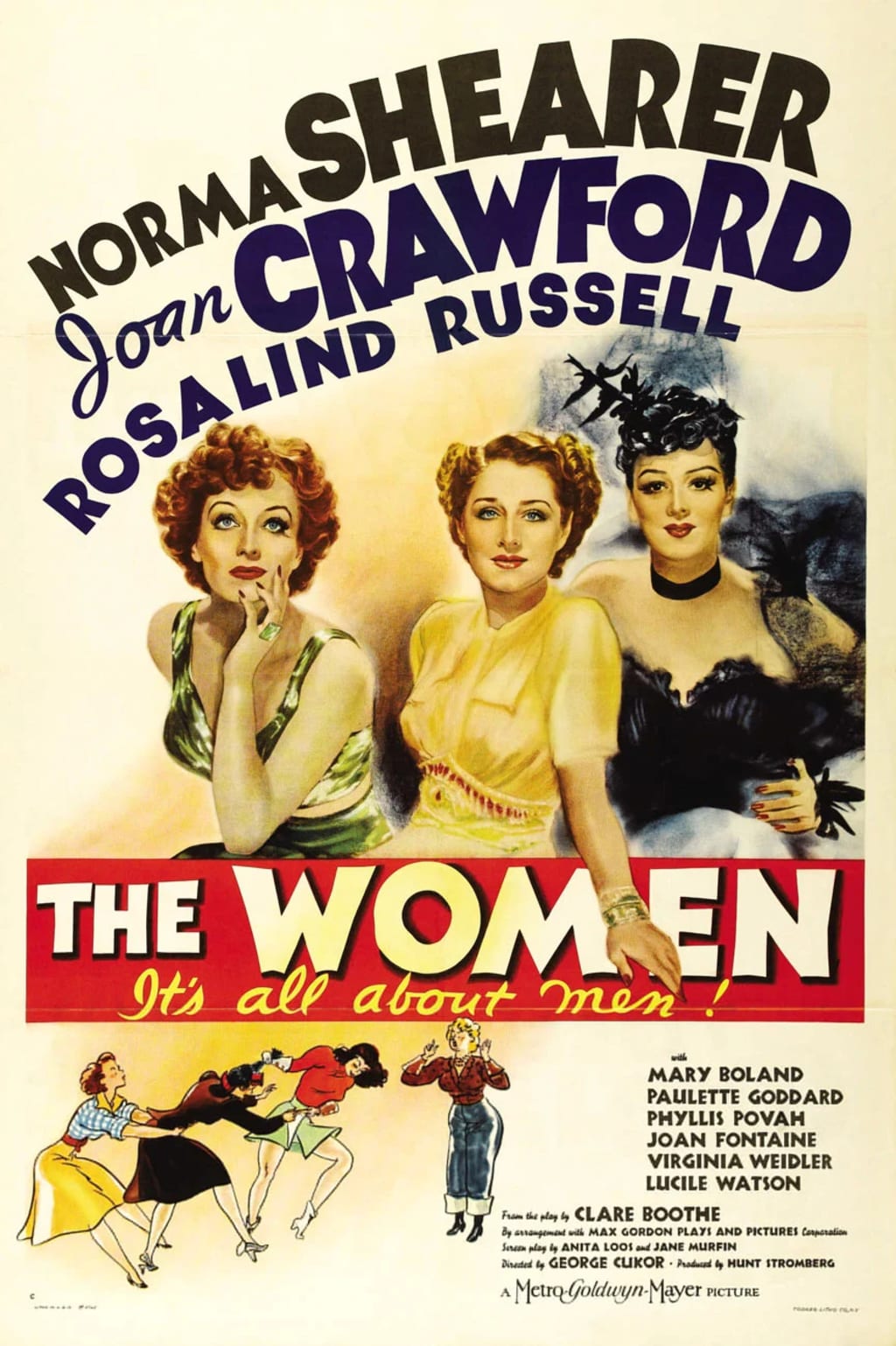
The Women (1939) is a comedy drama directed by George Cukor featuring an all-female cast. But as the tag-line says, “It’s All About Men!”
It is an unusual piece of cinema, for several reasons. First, it consistently breaks the writing rule – “Show Don’t Tell” – with opening credits that compare characters to animals so we know the good from bad. And it continues telling rather than showing throughout, focussed on gossip rather than on-stage action.
Another novelty in the black and white film, is the break for a technicolour fashion show. Women in sporting wear, swimwear, evening wear and lingerie.
And not a single male speaking part.
“Hooray!” I hear a feminist chorus shout. But hold on sisters, hold on.
Let’s just mute the celebration a little. This film looks great. The clothes are gorgeous. Some of the performances are delightful The writing has some real snap to it.
Crystal (Joan Crawford): There's a name for you ladies, but it isn't used in high society... outside of a kennel. So long, ladies!
It is definitely possible to love this film.
But I also want to say that despite the stellar cast and writing team, the movie is just a bit of fluff. Whilst I was happy to indulge in the cosiness of the performances and the 30’s décor, it also left me feeling, well, deflated.
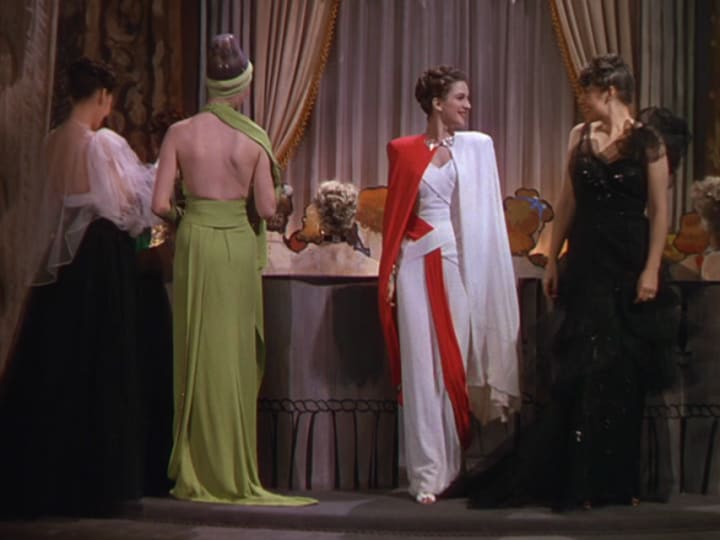
Whilst it is almost revolutionary to fill the screen with women – it is also disappointing to suggest that this is what womanhood looks like.
Betty Friedan wrote in The Feminine Mystique
“Each suburban wife struggles with it alone. As she made the beds, shopped for groceries, matched slipcover material, ate peanut butter sandwiches with her children, chauffeured Cub Scouts and Brownies, lay beside her husband at night- she was afraid to ask even of herself the silent question-- 'Is this all?”
The problem with no name.
And this is what The Women exemplifies. It is a hollow life, where women are asked to compete in domesticity. And their greatest currency, whatever their character or accomplishments, is gossip.
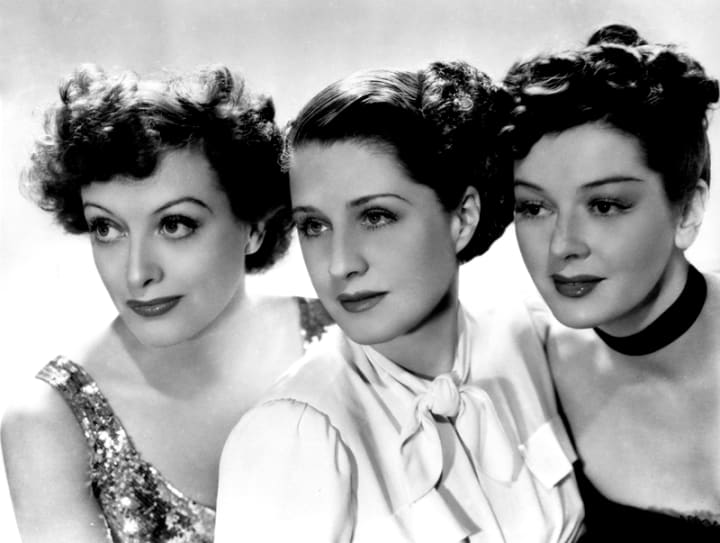
So, watching the film, I felt the emptiness of Friedan’s analysis.
But I was also aware of bell hooks critique of Betty Friedan’s work and the privilege of living a problem with no name, of comfortable domesticity.
Friedan’s solution was for women to be liberated they needed to find work outside the home.
Hooks retort is:
“Early feminist perpetuation of the notion ‘work liberates women’ alienated many poor and working-class women, especially non-white women from the feminist movement.”
And they would definitely feel alienated watching this portrayal of women’s experiences centred around the high-class Manhattan apartments, where women's work is to find (or entrap) a wealthy man. This film is not about the diversity of women’s experiences, relationships or responsibilities. It is a monotonous world where no-one is disabled, gay or struggles with racism (except for the very short cameo by Butterfly McQueen in yet another uncredited, serving role.)
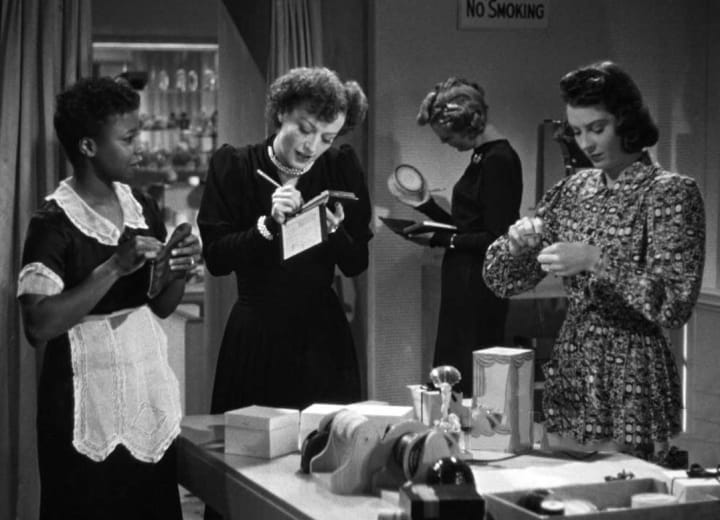
The film is not a feminist breakthrough.
It is a ‘woman’s film’, but with its emphasis on competition between women, scrapping over scarce and unreliable masculine resources, it still manages to emphasise the primacy of men (even when they are not on the screen).
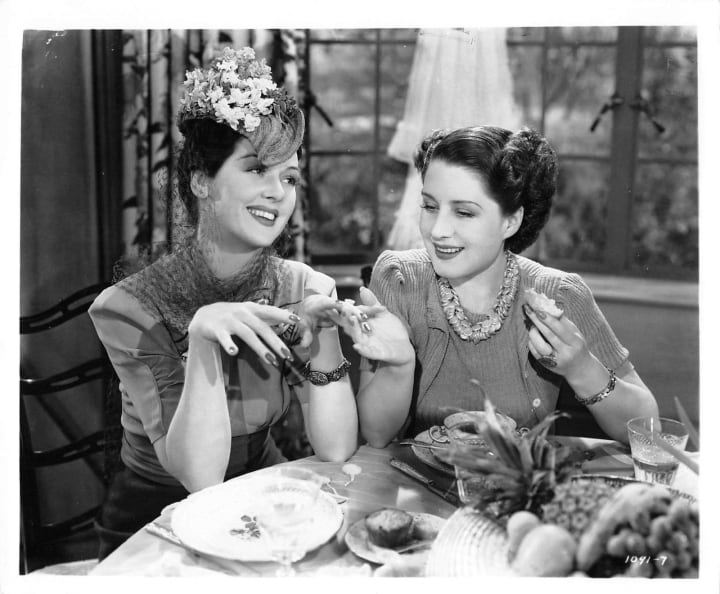
And it has a weird jarring effect. Because for all the fluffy surface of women craving easy domesticity, it is being performed by ambitious, career women. Some of whom, only a few years earlier before the Production Code took hold, had gained their stardom by playing strong, independent women, engaging in risky, sexually provocative behaviour.
Just under the surface of the gossip on screen, there were the real women who had to navigate their own lives being gossip for fanzines and tabloids.
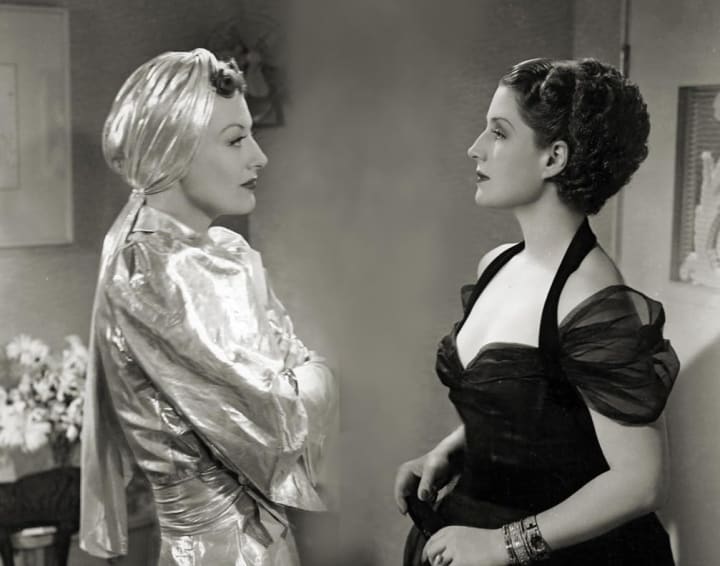
Norma Shearer who takes the role of Mary, is a prime example of the mismatch between the on- screen depiction and real life values. Shearer was a shrewd business woman who would normally only accept joint billing with a man. However, she made the exception for Joan Crawford. She did not want to make the same exception for Rosalind Russell. So, Russell staged a walkout and didn’t return until Shearer changed her mind.
But Norma didn’t really want this role. She found it melodramatic, sentimental and weak. She complained it was ‘too noble’.
In The Women, Shearers’ character, Mary, spends much of the film trying to maintain her dignity in dealing with her husband’s infidelity, eventually leading to divorce.
This is not the first time Norma had played a divorcee following infidelity. In fact her role as Jerry in the film The Divorcee (1930) won her an academy award. But the path taken by Jerry was very different from that of Mary. Jerry was less concerned with social convention. On hearing that her husband was unfaithful but that it did not ‘mean a thing’, she takes it upon herself to ‘balance the books’ and sleep with a friend. The Divorcee is about a modern career woman who highlights the hypocrisy in sexual double standards. It was a typical pre-code Shearer free spirit role, exploring issues of modern femininity, such as female employment, sexual freedom and marriage.
But the Hayes code and widowhood, when Irving Thalberg died from a heart attack in 1936, narrowed Norma’s previous opportunities. Taking time out after her husband’s death, to be mother to her children, but also to fight the studios to ensure that she continued to receive her dues from Thalberg’s production career, she returned to the movie industry being seen less as a career woman, and more as a tragic widow.
The Women is fun, but it doesn’t show the Norma Shearer that dazzled in her favourite pre-code films. She should be remembered for playing strong women and for being a strong enough woman to take on Louis B Mayer and winning.

I wanted to love The Women because it was potentially subversive to put so many women on screen. But I didn’t. Despite all those women performing their guts out, this movie barely passes the Bechdel test. Nearly all the conversations are about men.
But I can see that it still has the potential to be read in different ways. Yes, it has a saccharine ending. And marriage and fidelity might be sold as the pinnacle of a woman’s life. But, it also shows how hard and embarrassing that life can be. Good triumphs, but the nobility of Norma Shearer’s Mary might just be too bitter and heavy a burden. Mary rushes to hug her prodigal husband, and I was left thinking how much she had had to suffer for such little gain. After all, she had some funny, clever women who would have offered much better company if they weren’t all forced into competition and rivalry.
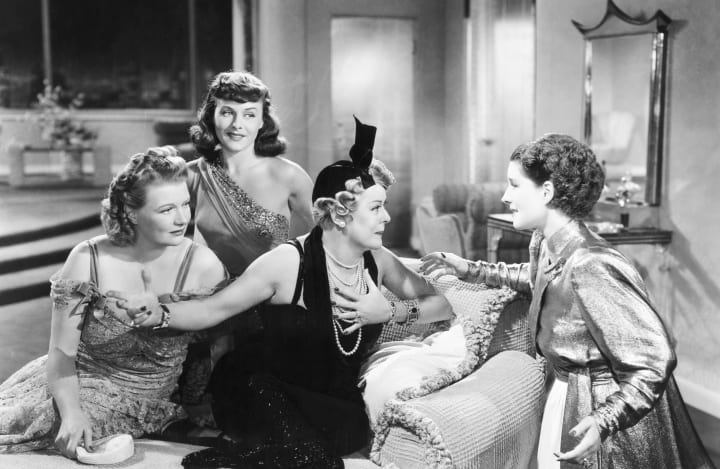
If you've enjoyed what you have read, consider subscribing to my writing on Vocal. If you'd like to support my writing, you can do so by a regular pledge or leaving a one-time tip. Thank you.
About the Creator
Rachel Robbins
Writer-Performer based in the North of England. A joyous, flawed mess.
Please read my stories and enjoy. And if you can, please leave a tip. Money raised will be used towards funding a one-woman story-telling, comedy show.
Enjoyed the story? Support the Creator.
Subscribe for free to receive all their stories in your feed. You could also pledge your support or give them a one-off tip, letting them know you appreciate their work.






Comments
There are no comments for this story
Be the first to respond and start the conversation.